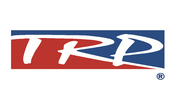Quality Brake Chambers and Preventive Maintenance Helps Operators Keep Trailers Operational
 Oct 6, 2010 | Filed Under:
Oct 6, 2010 | Filed Under:  Spec'ing guide
Spec'ing guide Parts purchase decisions made to maximize short term cash flow can result in long-term implications such as costly repair bills, downtime and a decrease in the operating life of trucks, as well as their trailers.
Managers from leading Kenworth and Peterbilt dealers report that trailer neglect is a common problem in the industry and one that can and should be corrected.
“As freight volumes begin to increase, it’s particularly important for operators to pay attention to their trailers as they gear up and return dormant equipment back to service,” said Jim Moore, parts manager for Kenworth of Mississippi-Jackson. Kenworth of Mississippi-Jackson is part of Kenworth of Alabama & Mississippi Inc., with five locations in the two states. “Dragging brakes and hanging brake chambers on trailers can throw the truck out of alignment, damage the truck’s fifth wheel or cause problems in the truck’s suspension.”
Increased economic activity is leading to an increase in vehicle utilization for equipment that was left sitting through the harsh winter and summer heat. “When you have equipment sitting unused for extended periods of time, particularly trailers, condensation from rain penetration and snow melt can cause rust to build up,” said Jason Swan, service manager of Peterbilt of Hattiesburg in Hattiesburg, Miss. Peterbilt of Hattiesburg LLC is one of the five dealerships of the Day Dealer Group, which covers southern Louisiana and Mississippi. “Operators should make a habit of inspecting the brakes on sidelined trailers by hooking them up to an air supply and actuating them.”
Kenworth of Mississippi’s Moore recommends that operators routinely check the brakes of sidelined trailers for rust at the parking brake side and the mounting bolts. If rust or any other structural damage is present, the brake chamber must be replaced, he added.
“However, if you have problems with trailer brakes and no structural damage or rust is present on the emergency brake side, the brakes may just require adjustment or the air system may need to be checked,” Moore said. “Also inspect movement of the brake cams. Hanging cams can cause all sorts of problems with brake chambers.
“One of the benefits of installing and using trailer brake chambers offered by TRP Aftermarket Parts is a colored stroke indicator that makes it easier for operators and mechanics to identify the need for a brake adjustment,” he added.
If the valves are leaking, Moore said don’t replace them without first checking to see if the diaphragms in the brake chambers are leaking. Over time the diaphragms can rot and leak as well. If the service diaphragm is leaking, it can be replaced without going to the expense of replacing the entire brake chamber assembly, Moore added. A leaking emergency diaphragm means the entire brake chamber assembly should be replaced.
When a trailer brake is frozen, that‘s certainly one of the most obvious signs of trailer brake problems, Peterbilt of Hattiesburg‘s Swan said. But a visual inspection needs to be done to determine if the problem is the result of brake shoes adhering themselves to the brake drums or the result of a brake chamber problem. Dirt and other contamination can also cause internal wear.
“Chemicals used in de-icing roads, such as magnesium chloride, can be very corrosive and eat through metal,” he said. “The best way to prevent corrosion damage is to wash the trailer undercarriage regularly.”
“Some of the biggest problems we see on trailers are associated with trailer brakes and result from the actions of inattentive drivers,” said David Undernehr, inventory control manager for Peterbilt of Hattiesburg. “If a driver isn’t careful when he’s backing into a dock, he could miss the dock, allowing the dock lock to hit the brake chamber, damaging it or tearing it off.”
“Using inferior brake chambers on trailers can also lead to major problems,” Undernehr said. If the bolts holding the brake chamber to the bracket pull through the base of the chamber, that’s usually a sign of a poor quality brake chamber made of lighter gauge steel. Trailer brake chambers from TRP Aftermarket Parts are what we recommend to our customers. The TRP chambers are made with a 10-guage reinforced stud-mounted housing, which provides exceptional strength, he added.
“In addition, the TRP trailer brake chambers have polished chrome-plated internal push rods that prevent seal wear, which would allow dirt to enter the inner chamber parts,” Undernehr said. “And the epoxy-coated steel power springs provide longer life and are highly resistant to corrosion from road salts, chemicals and other contaminants. They also have synthetic rubber diaphragms to resist abrasion. Advanced seals maintain separation of the brake chamber’s service brake and parking/emergency brake sides, eliminating premature air leaks, which can reduce the life of the trailer brakes.”
New federal regulations requiring shortened stopping distances won’t require changes in brake maintenance, but they will require operators to be careful in the replacement parts they choose for their trailer brakes, Swan said.
“In the coming years, as new Federal Motor Carrier Administration rules for stopping distances take effect, it will become even more crucial for operators to use quality replacement brake chambers that meet the needs of their applications on their trailers,” Swan said. “Operators will also need to be sure they include the inspection of brake chambers as part of their drivers’ walk-around regimen.”
ABOUT TRP Aftermarket Parts: TRP Aftermarket Parts for commercial vehicles are available through a network of authorized retailers that include Kenworth, Peterbilt, and DAF dealerships around the world. From dump trucks to cement mixers, delivery vans to tractor trailers, school buses to transit buses, TRP offers reliable aftermarket products that are designed and tested to exceed customers’ expectations regardless of the vehicle make, model or age. For more information, visit the TRP web site.


